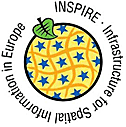|
| EU and international affairsFocal topicsBarrier-free cityBerlin pursues a barrier-free construction policy. This requires coordination and construction planning for the needs of people who want to use the diverse amenities offered by the city free from physical barriers. To this end, the Senate Department for Urban Development, Building and Housing has set up a coordination office for barrier-free building. It ensures a uniform approach in Berlin, when it comes to barrier-free accessibility as an inescapable and natural part of Berlin’s building culture. The coordination office, in cooperation with the Chambers of Architects (Berlin, Germany, International), also contributes its expertise on an international level. In 2010, the “"Barrier-free City for All” working group was established within the “Eurocities” network of European cities on the initiative of Berlin. In this group, the development of the “Barrier-free city” in Europe is advanced conceptually and practically, together with other city partners. The coordination office represents the operative concerns of the Senate Department for Urban Development, Building and Housing in this work group on the accessible built environment (publicly accessible buildings, residential buildings and surroundings, outdoor public spaces). In addition, the coordination office works closely with Berlin’s partner city Moscow. Building on Berlin’s planning principles, the Russian capital has started its own accessible urban redevelopment. Both cities regularly exchange information about new developments. European spatial developmentSince 1996, the Joint Spatial Planning Department of Berlin-Brandenburg has been the highest competent authority of the States of Berlin and Brandenburg for spatial planning. As the joint department of the Senate Department for Urban Development, Building and Housing of Berlin and the Brandenburg Ministry for Infrastructure and State Planning, it participates in various EU-relevant topics. The cross-border activities include participation in the European Territorial Cooperation (ETC – Interreg). With its transnational projects (Interreg B), the ETC contributes to European added value and to regional development. In addition, the participants improve their internationalisation and competency learning, by working on joint relevant solutions to problems. In various joint State spatial planning projects on Intergreen Nodes and BSR Access approved in 2018 and 2019, transnational project partnerships are currently working on undertakings lasting around three years covering the topics of innovation, climate and energy, transport, relating to the European urban node Berlin-Brandenburg. Further development of the Trans-European transport networks is also relevant for the important European urban node (transport hub) Berlin. This is where three Trans-European transport corridors cross: Scandinavia-Mediterranean, North Sea-Baltic Sea and Orient/Eastern Mediterranean corridor. German-Polish cooperation plays a special role in European spatial development. Currently at the heart of this cooperation is the implementation of the “Joint future concept for the German-Polish Interaction Area - Vision 2030”. The objective is to improve the international competitiveness and marketing of this area and the individual projects. The current focus is to create a bilingual map of the rail connections to be developed in the interaction area in the future. In addition, the Joint Spatial Planning Department is involved in the Interreg A project scheduled to begin in May 2020 on cross-border data monitoring in the metropolitan region Stettin and represents the die Capital region in the coordination group for this metropolitan region. GeoinformationIn 2002, under the name EUPOS, the Senate Department for Urban Development initiated the setting up and operation of a uniform basic structure for a Differential Global Navigation Satellite System (DGNSS) for positioning in Central and Eastern Europe. EUPOS stands for “European Position Determination System”. The objective of EUPOS is to expand the continental DGNSS network of reference stations. The member administrations agree and coordinate on topics such as operation of the stations and their further development due to technical developments and quality management of the correction data provided by the reference stations. Until 2013, the Berlin Senate Department for Urban Development, Building and Housing held the chair and provided the office for the EUPOS steering committee. The EUPOS chair is currently held by the Slovakian partner administration and the Chairman is the Headmaster of the Geodetic Controls Division, Geodetic and Cartographic Institute of Bratislava. Since 2014, the EUPOS members have met annually for a technical and council meeting.  ContactDr Marion Mienert Head of Unit Tel.: +49 30 90139 4160 Email: marion.mienert@senstadt.berlin.de Daniela Heldt International affairs, Events Tel.: +49 30 90139 4162 Email: daniela.heldt@senstadt.berlin.de Götz Müller EU affairs, Competitions Tel.: +49 30 90139 4163 Email: goetz.mueller@senstadt.berlin.de Links | |||||
 Leichte Sprache
Leichte Sprache